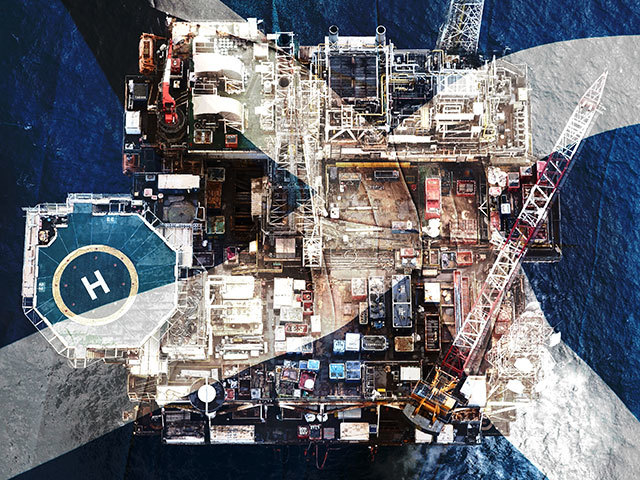
As the referendum draws to a conclusion, every day a new forecast hits the news, complicating the thoughts of those voters who are intent on making a decision based upon reason and not just emotion.
For many, but not everyone, the key issue is whether or not Scotland will be economically better off, or worse off, as an independent nation. Clearly, if we are better off the population can expect a better standard of living, and vice versa. So far, leaving the emotional rhetoric to one side, the independence debate has concentrated on the issues of EU membership and the future use of the pound but overall, the analysis of the key issue of Scotland’s future financial well being has been long on speculation and short on facts.
A key irrefutable fact is that the biggest source of revenue to an independent Scotland will come from our oil and gas resources. Consequently it’s no surprise that there are many forecasters seeking to talk up or talk down the billions of barrels of oil reserves that lie in the North Sea. Is it 12 billion or 24 billion? Of course, all of these forecasts are based upon a variety of differing assumptions, the most important of which (oil price) nobody has any control over. But does it matter whether it’s 12 billion or 24 billion? To me, potential reserves is the wrong metric to focus on because irrespective of their size, these reserves are of no value if they are not brought into production and monetised. The important statistic is the amount of production that is extracted on an annual basis and its corresponding value to the economy. In that regard there is no escaping the fact that since 2010 UK oil production has fallen by more than a third, and that according to figures from HM Revenue and Customs, in the last tax year tax revenues from the North Sea fell from £6.1 billion to £4.7 billion. This was attributed to lower production and higher costs.
Can these trends be reversed? I don’t want to fall into the trap of forecasting, but the facts suggest that irrespective of whether the country separates or not, the UK’s offshore industry is facing considerable headwinds. The North Sea has always been one of the most expensive regions to operate but in recent years it’s become even more difficult to bring on new production because service costs have risen significantly, the costs associated with increased regulation are biting, and taxation is high. That is why last year only 14 exploration wells were drilled compared with 44 in 2008 and why only 13 of the 21 new fields slated actually came on-stream. The others were delayed or put on hold because of spiralling costs. These included the multi billion dollar Chevron Rosebank project and the Statoil Bressay heavy oil project.
A significant increase in oil prices would help significantly, but oil prices have been range bound at $100-120 a barrel for the last five years, and in fact have declined just below $100 a barrel in the last three months. A significant reduction in taxation of oil revenues would also make a positive difference to investment in the basin, but that would clearly push tax revenues in the wrong direction. It would therefore take an enormous leap of faith to anticipate any meaningful increase in revenues from North Sea oil to finance increased spending in an independent Scotland.
Turning to the cost side of the ledger, it is inevitable that both an independent Scotland and a UK without Scotland will both have lower credit ratings than the UK as a whole currently enjoys. Consequently the cost of financing the two national debts that emerge will inevitably rise significantly. In Scotland’s case the combination of political independence with a shared currency (whether Sterling or Euros) will put the country at a significant disadvantage. You only have to look at Spain to see this can be a recipe for disaster because there is no ready source of large scale aid available in times of financial trauma. Five years on from the crisis, unemployment in Spain is running at 24% whilst in the US and UK unemployment has fallen below 7% largely because of the large scale support of the Fed and the Bank of England. Add to this the cost of an independent Scotland replicating all the government departments and agencies, the loss of the Barnett formula (whereby Scotland has received a higher share of UK government spending than its population share justifies) and it is very hard to see how an independent Scotland could possibly be better off financially.
On the 18 September we will make the most important political decision in our lifetime. My sincere hope is that we all vote with our head and not just our heart.
Colin Welsh is the chief executive of Simmons & Company International Limited.
Recommended for you
